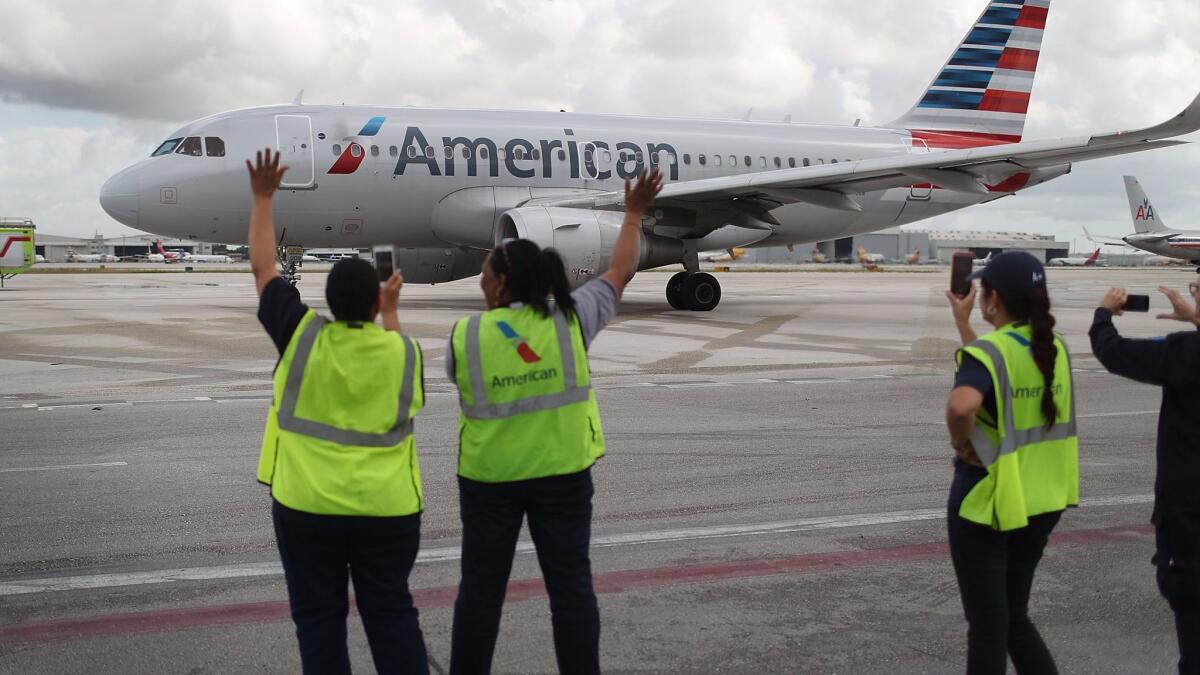U.S. airlines are not giving up on Cuba after all

Only weeks after two small U.S. airlines announced plans to cut back service to Cuba, four major carriers have filed applications with the U.S. Department of Transportation to take over the routes to the island nation.
Behind the revolving door of flight plans is an effort by the nation’s biggest carriers to get access to the most popular Cuban destination: Havana.
When the Obama administration announced an agreement last year to allow regularly scheduled flights into Cuba, nearly every major U.S. airline raced to file applications. The agency awarded six U.S. airlines routes to 10 airports in Cuba, including Havana.
But a few months ago, low-cost carriers Frontier Airlines and Silver Airways each gave up three routes they were awarded to Havana, saying there was already too much supply to justify the cost of operating in Cuba.
American Airlines also cut back service between Miami and smaller Cuban cities outside of the capital. JetBlue switched to smaller jets to serve Havana and some small Cuban cities.
Now, Delta, American, Southwest and JetBlue have filed applications to pick up the routes to Havana that Frontier and Silver gave up.
Delta, American and Southwest all propose adding flights either from Fort Lauderdale or Miami to Havana. JetBlue proposes new routes from Fort Lauderdale and Boston to Havana.
In its application to the federal agency, Southwest took a swipe at those carriers that cut service to smaller Cuban cities.
“Southwest is one of the few airlines that has neither abandoned frequencies nor downgraded service on its awarded routes,” the Dallas-based carrier said.
The Department of Transportation has not said when it will decide on the latest applications.
To read more about the travel and tourism industries, follow @hugomartin on Twitter.
More to Read
Inside the business of entertainment
The Wide Shot brings you news, analysis and insights on everything from streaming wars to production — and what it all means for the future.
You may occasionally receive promotional content from the Los Angeles Times.











